As promised here are the final 5 of our most commonly asked questions.
6. What marine life can we expect to see while diving and how should we interact with it in a responsible manner?
Every dive site will have a variety of marine species that are common to that location and that we can expect to see on most of our dives there. As you become familiar with these species you will start to notice the more unusual species in your area. A dive guide will help by pointing out species on the dive and identifying these for you. There are plenty of books, marine ID guides, and websites such as INaturalist that can help you identify what you see on your dives.
As divers we should maintain proper buoyancy to avoid contact and disruption to the sea floor and reefs and observe marine life without harassing it. If you are hunting, then please ensure the animal meets fisheries guidelines before collection.
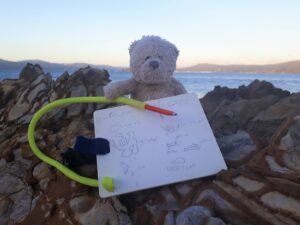
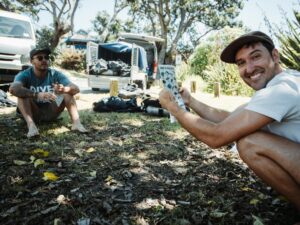
7. How to plan a scuba diving trip, including travel arrangements, accommodation, and dive packages?
The easiest way is to sign up with a trip organised by your favourite Dive HQ store. We work with trusted dive operators to visit local and international dive sites, and everything is included in the package. The trip leader can help answer questions and coordinate activities on your trip. Traveling with a group can provide opportunities to explore more places and meet new dive buddies when you return home.
Traveling on your own offers more flexibility but you may miss out on opportunities if the resort needs more divers to run the dives. If you are planning a dive holiday using a dive travel agent can simplify your experience and provide a full package.
If you are going on holiday and just planning on doing a couple of dives research the resorts online, check the reviews and ask other divers about their experiences.
Pro Tip: When traveling solo and joining in a group dive. buddy up with another single diver on your dives so that there is someone looking out for you. With larger groups the dive guide may not be able to monitor everyone effectively.
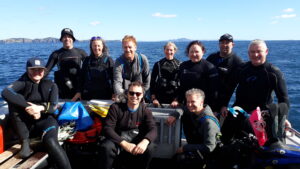

8. What are the potential risks and hazards of scuba diving and how to avoid them?
Scuba diving involves risks and hazards including equipment failure, decompression illness, gas narcosis and marine life encounters. To minimise these risks, you should undergo proper training and keep your skills up to date, maintain your equipment and ensure you have the appropriate equipment for the dive you are undertaking.
Following safe diving practices such as diving with a buddy, planning your dive and diving your plan, monitoring depth and time and not disturbing the marine life.
All divers should avoid diving beyond their level of training and experience – if it has been a while complete a refresher, review your dive medical and slowly build up your dive fitness up before jumping back in for those bigger dives.
By taking these precautions and being aware of and prepared for potential hazards you can enjoy a safe and rewarding dive experience.
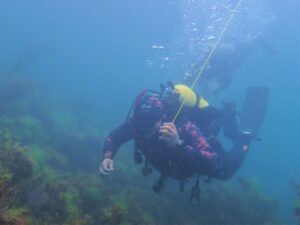
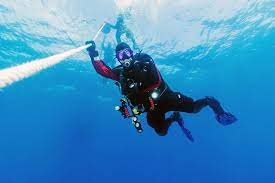
9. What are the environmental impacts of scuba diving and how to minimise their ecological footprint while diving?
Divers can have a positive impact by participating in clean up events, invasive species surveys and by choosing resorts with an eco-focus in their operations.
Negative impacts can include poor buoyancy resulting in reef damage from fins, tanks and sediment stirred up by the diver. Souvenir collection, whether it be shells or artefacts from a wreck, is actively discouraged and may result in a fine.
Boat diving has impacts including damage caused by anchoring up, discharging pollutants, and transporting invasive species between sites. By being aware of these potential impacts and taking steps to actively reduce them divers can help protect the marine environment for future generations.
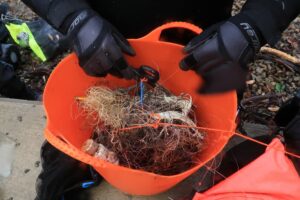
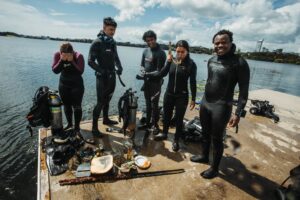
10. How do I find other divers that enjoy the same dive activities as I do?
Joining a local dive club is the best way to gain more experience and meet other divers that you connect with. Finding a buddy (or two) that has similar interests, air consumption and diving styles makes a huge difference to your enjoyment of diving.
Your local Dive HQ store will provide trips and other activities that will enable you to meet other divers in your area – the more divers you know the more dive opportunities you will have. The diving community throughout New Zealand is small so if you are travelling around the country, we can point you in the right direction to find a store or buddy to go diving with at the destination of your choice.
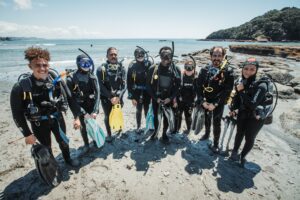
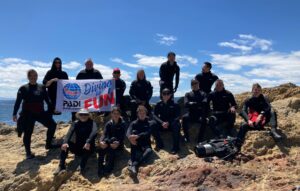
We hope you found some helpful answers and some more reasons to go diving. If you have another question just ask us and we can answer this for you directly.